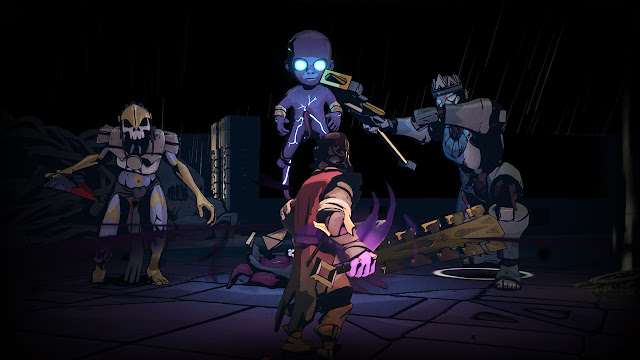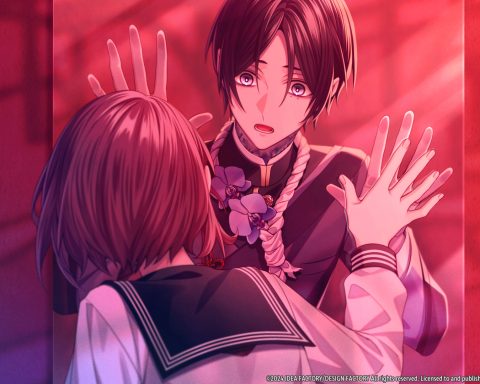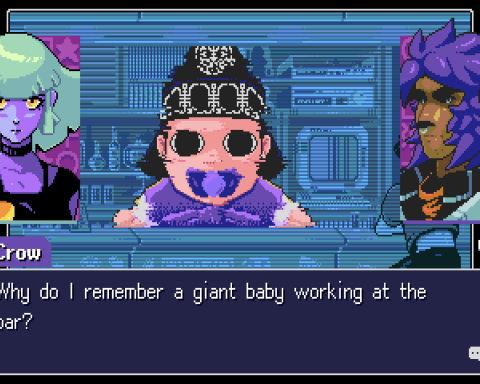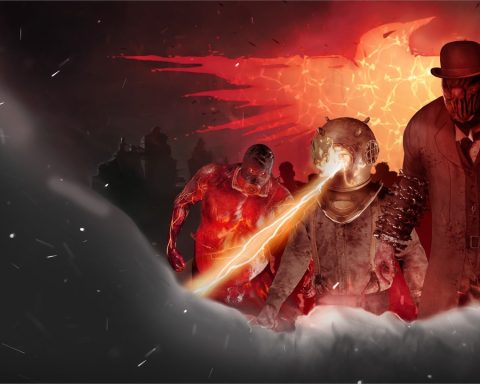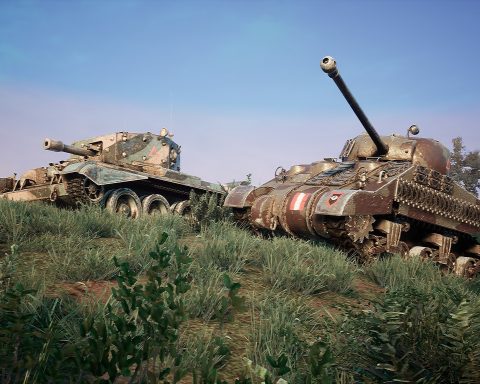While the roguelike genre is well overplayed at this point, enjoyable examples of the genre do deserve to be noted as such. Curse of the Dead Gods is an enjoyable roguelike, but being too stylistically similar to last year’s breakout super-hit, Hades, won’t help its cause, and too much of the game’s appeal only becomes apparent too deep into the experience.
As I note in the video that I’ve done of the game (see below), the big problem here is that Curse of the Dead Gods is the wrong kind of hard at first. It’s frustrating. It’s a death of a thousand cuts experience that makes the boss battle at the end of the run a foregone conclusion. Every enemy has different attack patterns, speed, and quirks, and until you’ve gone through a painstaking process of learning the exact timing to parry those attack patterns, Curse of the Dead Gods is a frustrating exercise in knowing what you need to do, but not being able to execute in the heat of the battle. It’s a punitive learning process of punishing players until they stop making mistakes. Hades, by contrast, rewards skilful play and immediately provides players with a much more positive feedback loop, particularly in the early stages of the game; you might make mistakes and get knocked out on a particular run, but you’ll enter the next run entirely confident that you’ll make progress.
Curse of the Dead Gods gets really good with expertise, though. Once you have the timing of the enemy attack patterns down, and an understanding of each of the weapons that you’re carrying into battle, the ability to stand your ground, counter every attack that comes in, and then unleash bone-crunching counters makes for some viscerally entertaining battles. There’s also a highly engaging and nuanced system around “corruption” that your character accumulates automatically through a run, and can be boosted by attacks of some enemies and voluntarily added to in exchange for enhanced powers or items. Eventually, it results in “curses” that need to be compensated for and – rarely – also confer boons. This system introduces an excellent risk/reward system in play. You may well be able to take on some additional corruption in order to level up attributes or get access to powerful artefacts, but the impact of those curses can really start to bite.
Curse of the Dead Gods also forces players to use a wide range of different items by randomising starting loadouts, and gives you plenty of choices in terms of the paths that you’ll take through each run. It’s an unforgiving game, to be sure, but it’s also one designed around giving you the tools to overcome its roguelike randomness… once you know what you’re doing.
Perhaps my favourite element of all, though, is one relatively minor one; the introduction of a torch. Because you’re delving into lightless places, you need to carry a torch around, and most rooms with enemies have braziers that can be lit to provide light through battle. You can’t use your weapons while carrying the torch, but if you fight in the darkness, you’ll take much more damage from enemies. So, as a result, you’ll need to run around, looking for those braziers to light and avoiding enemy attacks until you can fight in the light… the only problem being that the fires can be put out or the braziers destroyed. It adds another thing to think about in the heat of melee, but it’s one that adds a great deal to the atmosphere and theme of delving into the ruins of antiquity.
While Curse of the Dead Gods isn’t overly narrative-driven, it is intriguing, and the randomised dungeon levels all have their own stories to tell. Enemies might cover off the who’s who of generic Dungeons & Dragons beasties, with snake-men, undead and so on, and traps are all the standard trigger-plates and motion-detection activated ones, but the artistic direction is sound, and it’s a lot of fun to guide these monsters into the pathway of the traps themselves.


